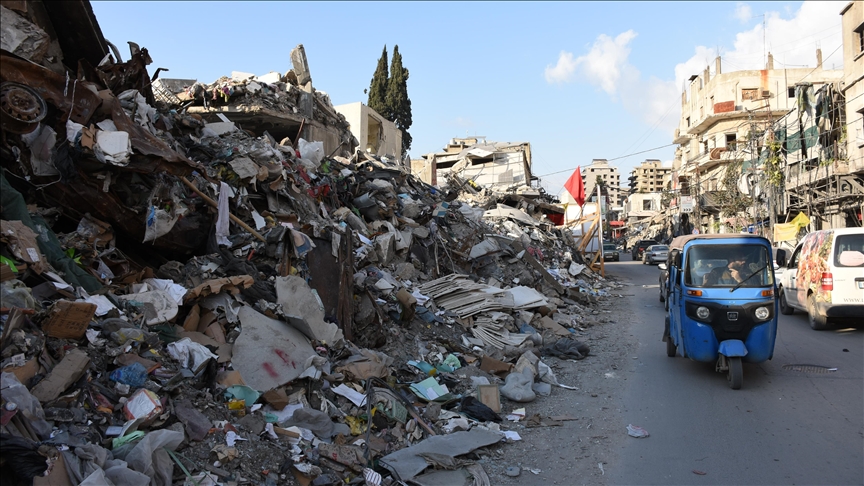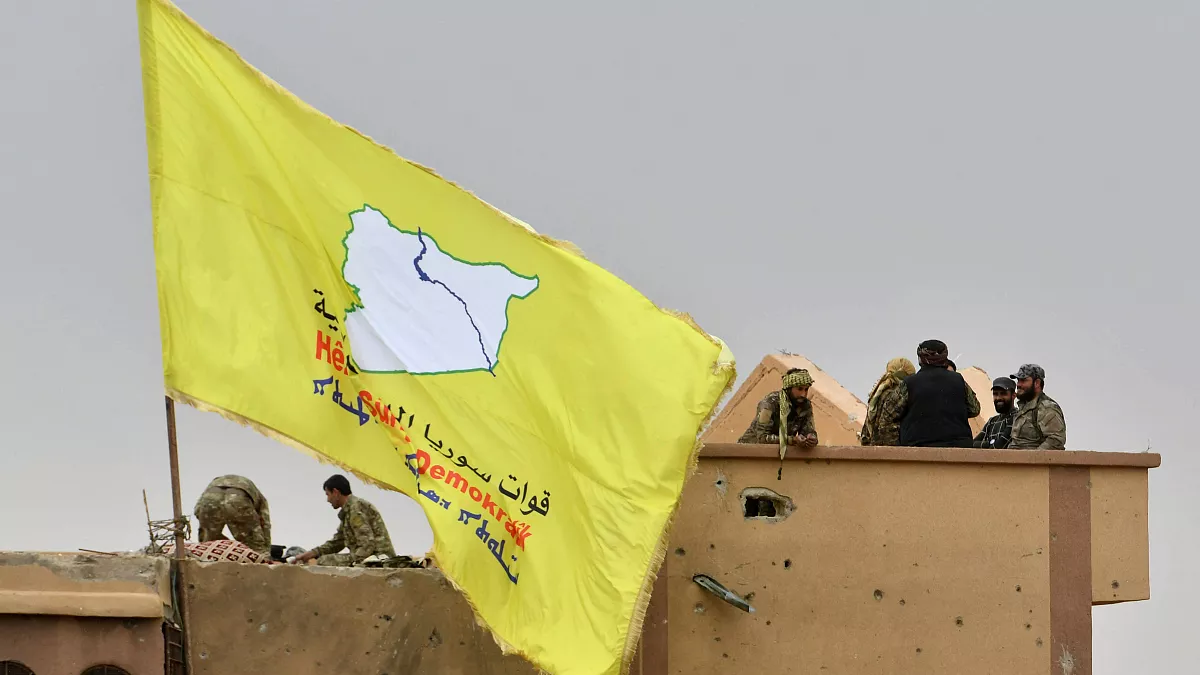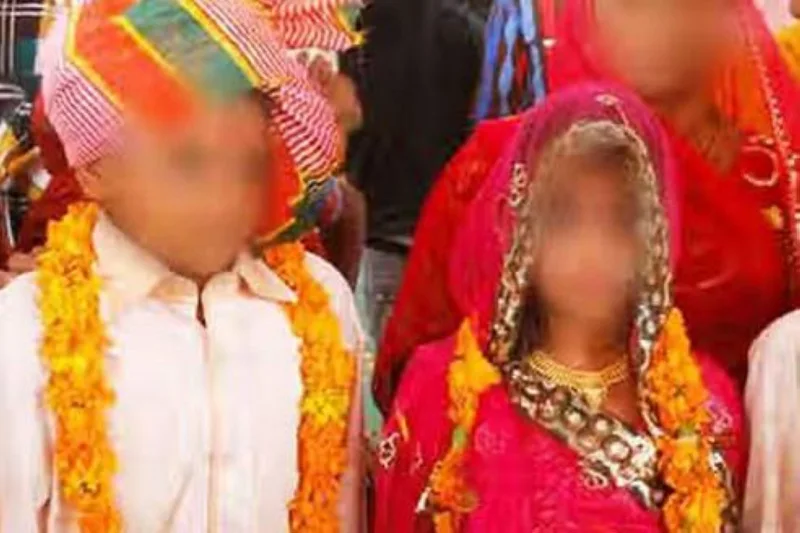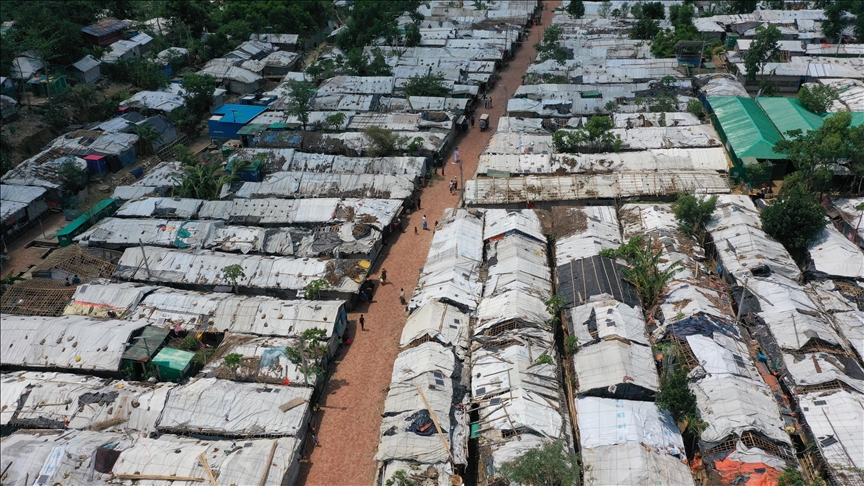Historical fabric of Lebanese city of Nabatieh also falls victim to Israeli strikes
Speaking with Anadolu, historian Ali Mezraani highlights historical importance of Nabatieh Market and Fadl’s House damaged in Israeli strikes
Muhammed Emin Canik |22.12.2024 - TRT/AA

A view of the destruction following Israeli attack in Nabatieh,
Lebanon on December 20, 2024.
NABATIEH, Lebanon
The historical fabric of the city of Nabatieh, one of the most targeted places by the Israeli army in Lebanon, was also damaged during the attacks.
In Nabatieh, where Israel intensified airstrikes in September and continued until Nov. 27, a significant number of historically valuable buildings and the city's market suffered severe damage.
Among the damaged historical sites is the house of former Economy Minister Muhammad Bek el-Fadl, who played a role in Lebanon's independence.
Speaking with Anadolu, historian Ali Mezraani highlighted the historical importance of the Nabatieh Market and Fadl’s House which were damaged in Israeli strikes.
Emphasizing that the Israeli attacks particularly targeted historical buildings in Nabatieh, Mezraani noted: "There are approximately 10 historical houses that have been damaged in Nabatieh."
He also pointed out that the city's market, which dates back 500 years and is from the Mamluk era, was severely damaged in the Israeli airstrikes, with surrounding shops dating back to the mid-19th century also destroyed.
Mezraani underlined the importance of restoring the city's historical buildings with a sense of heritage.
He further stated that Fadl was a significant figure in Lebanon's independence and his name and signature can be found on the Lebanese flag that declared the country's independence.
Mezraani also stated that Fadl's family traces its roots to an influential family that governed the region 200 years ago and that the house was built in the 1930s.
He highlighted that the house represented Nabatieh's historical and artistic identity, and that it had suffered significant damage in the Israeli attacks.
"Muhammad el-Fadl donated most of the land in this area to the people of Nabatieh, the poor, and those in need. He also donated the building of the Tekmiliyyeh School in the city,” he added.
He further said that important meetings were held in Fadl's House, and that in 1945, the then-president also visited the house.
"This house was one of the rare and historic houses remaining in Nabatieh. It is a fusion of Western and Lebanese architecture, with a large hall greeting you upon entering and arches between the rooms,” Merzaani said while describing the house.
He added that the house was decorated with wood and featured intricate carvings around it, calling it "one of the rarest houses in southern Lebanon in terms of its architecture."
Fadl's House: Famous for generosity
Misbah Ammar, a retired dentist who lived in the neighboring house of Fadl, said: "I have been living here for over 50 years. This place has been severely damaged due to the Israeli attacks."
Stating that the surrounding houses were at least 70 years old, he noted: "This entire neighborhood belonged to Fadl, and he was a person respected by people. His house was at least 100 years old."
Ammar added that especially before elections, meetings and celebrations were often held at Fadl's House.
“His door was always open, and he was known for his generosity," he said.
Ammar mentioned that the house across Fadl's House was also bombed and completely destroyed by Israeli warplanes.
In addition, the people of Nabatieh believe that despite Fadl's crucial role in Lebanon's independence, he did not receive the recognition he deserved from the state.
Fadl passed away on March 5, 1986.
*Writing by Esra Tekin in Istanbul















